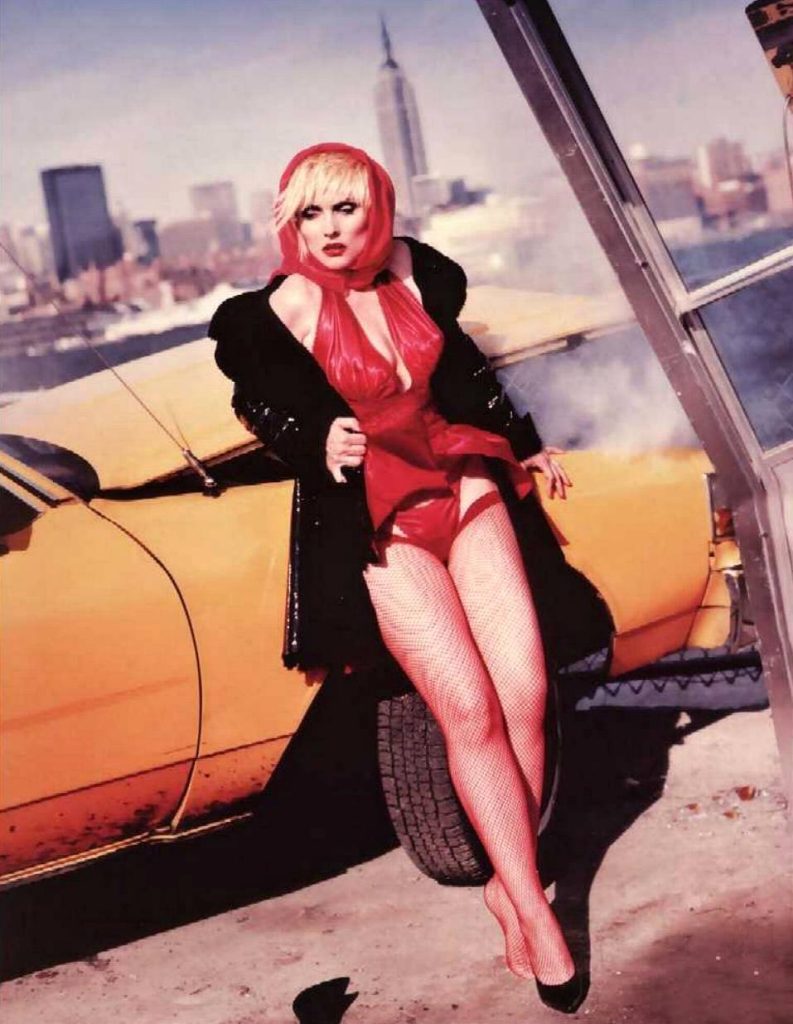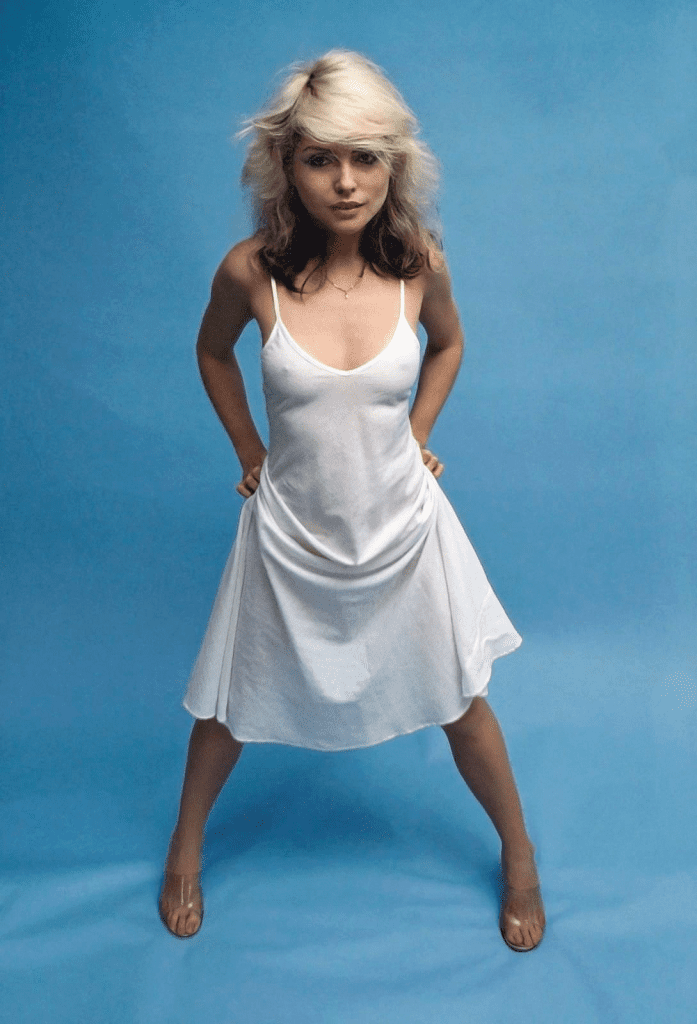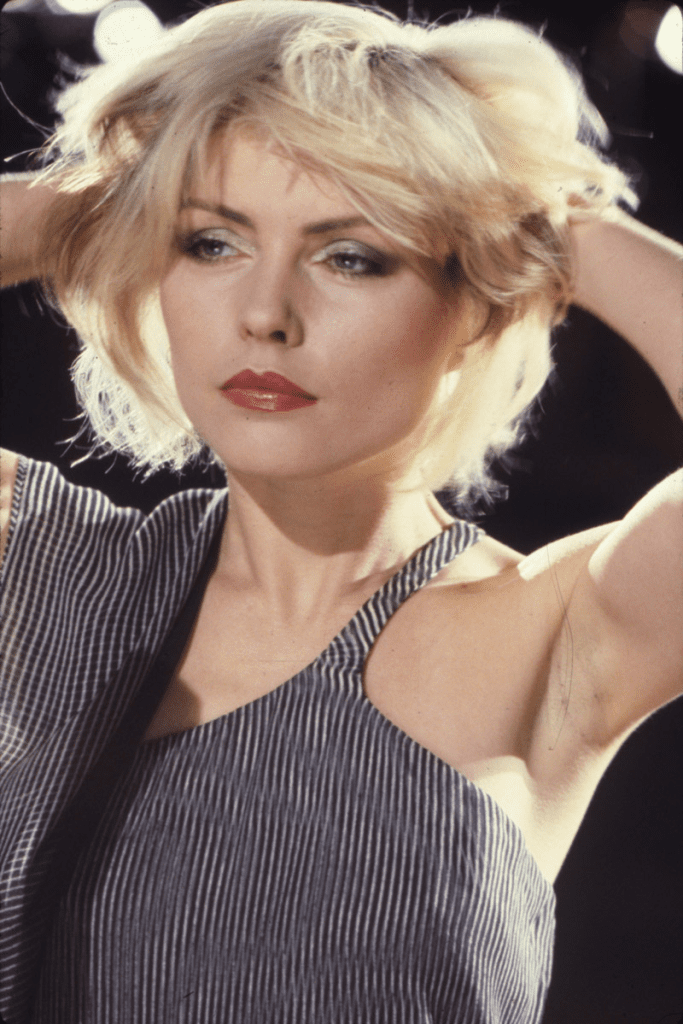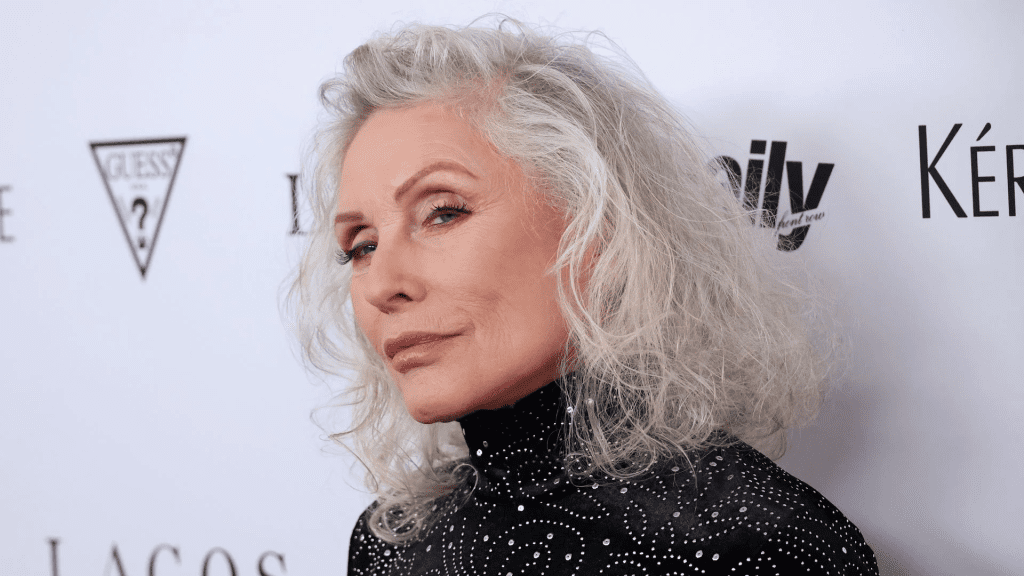Debbie Harry, the unmistakable voice behind the legendary band Blondie, remains an icon to this day. Known for her magnetic stage presence, striking beauty, and unapologetic style, Harry captivated audiences throughout the 1970s and 1980s with hits like Heart of Glass, Rapture, and Call Me. Even now, at 79, she continues to exude the same charisma and charm that made her a household name. But Harry’s journey is far more than just a rock star tale—it’s one of perseverance, transformation, and staying true to herself.
The Rise of Debbie Harry: From a Dreamer to the Queen of Punk Rock

Debbie Harry, born Angela Trimble on July 1, 1945, in Miami, Florida, is perhaps best known for her role as the frontwoman of Blondie, the band that defined the New York City punk rock and new wave scene. Raised in Hawthorne, New Jersey, and adopted as an infant, Harry’s early life was marked by a thirst for artistic expression. Before finding fame, she worked a variety of jobs: from a dancer to a Playboy Bunny to a secretary, including at the BBC in New York.
It wasn’t until the mid-1970s that her real breakthrough arrived. Along with guitarist Chris Stein, she co-formed Blondie in 1974. Their sound, a unique blend of punk, disco, and rock, soon captured the attention of the music world. By 1979, Blondie had achieved international success, and Debbie Harry became a cultural icon known for her edgy yet glamorous image.
Blondie’s Unstoppable Success: Hits That Defined a Generation
The late 1970s and early 1980s were a golden period for Blondie and Debbie Harry. With the release of their album Parallel Lines in 1978, the band skyrocketed to fame, producing hits like Heart of Glass and One Way or Another. These tracks became anthems of the era, and Debbie Harry’s distinctive voice was at the forefront.
But it was the song Rapture, from their 1980 album Autoamerican, that truly cemented Harry’s legacy. As the first rap song to hit No. 1 on the U.S. charts, Rapture was a groundbreaking fusion of genres and an indication of Harry’s bold willingness to experiment. With the band’s innovative approach to music, Blondie not only set trends—they created an entirely new wave of music that remains influential to this day.
A New Chapter: Acting and Solo Ventures
Though Blondie was at the height of its fame, Debbie Harry’s creativity didn’t stop there. She pursued acting during a hiatus from the band in the early 1980s, appearing in films like Videodrome (1983), directed by David Cronenberg, where her performance in the cult horror film showcased her versatility beyond music. Harry also starred in Union City (1980) and Hairspray (1988), adding to her growing resume in both film and television.
Simultaneously, Harry ventured into solo music with her debut album KooKoo in 1981. While it was a bold and experimental project, it didn’t achieve the same commercial success as her work with Blondie. However, it allowed Harry to explore her artistic freedom in ways that Blondie’s collaborative environment did not.
Challenges and Reinvention: The Unseen Side of Fame
Despite her success, Debbie Harry’s career was not without its struggles. As she candidly revealed in interviews, her rise to fame came with significant challenges, including navigating the difficult world of modeling and entertainment. Harry spoke openly about the discomfort and exploitation she often faced, stating that many opportunities in the industry came with a hidden price. Her experiences as a model and Playboy Bunny, though glamorous on the surface, were often marked by frustration and compromise.

But Harry’s resilience allowed her to rise above these obstacles. She was determined to carve out her own path in the music industry, and it was this drive that propelled Blondie to the heights of stardom. Over the years, Harry has been recognized not just as a s*x symbol or punk rock icon, but as a force of nature who stood her ground in a male-dominated industry.
Debbie Harry Today: A Timeless Beauty and Style Icon
Fast forward to today, and Debbie Harry, now 79, is still an embodiment of effortless cool. Despite the passing years, her beauty remains timeless—her angular face, long legs, and striking features still turn heads, reminding everyone why she was once the desire of so many. Harry has always defied conventional beauty standards, opting for a punk-inspired look that combined raw, unapologetic energy with sophistication.

Her style, from her platinum blonde hair to her edgy yet chic outfits, has made her a lasting figure in both fashion and music. Even in her late 70s, Harry continues to grace the stage with her undeniable presence, reminding us that beauty doesn’t fade with age—it only evolves.
Debbie Harry’s Legacy: An Icon for Generations
Debbie Harry’s legacy extends far beyond her work with Blondie. She is an enduring symbol of female empowerment, artistic innovation, and the fearless pursuit of individuality. Her influence has been felt across multiple generations, from the early punk rock days to the modern-day pop stars who cite her as an inspiration.
Her music continues to resonate with fans old and new, and her contributions to both the music and fashion worlds remain invaluable. Whether she’s performing on stage, attending charity events, or simply enjoying life, Debbie Harry embodies the spirit of resilience, creativity, and timeless beauty.
Conclusion: A Star Who Shines Brightly at 79

Debbie Harry’s journey is a testament to the power of reinvention and the enduring appeal of authenticity. From the punk rock icon of the 1970s to the charismatic 79-year-old superstar she is today, Harry has never lost her edge, her charm, or her style. In an industry known for its fleeting trends, she remains an eternal icon—proof that true talent, beauty, and grace only grow stronger with time.


